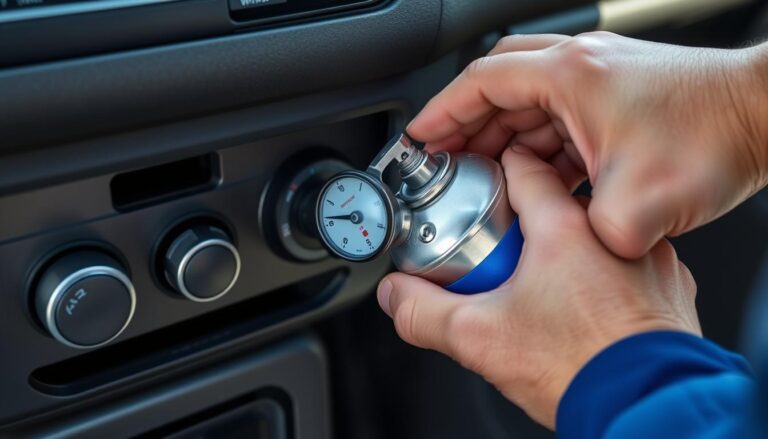The torque converter bolt torque specs should be followed as per manufacturer’s recommendations. Proper torque ensures optimal performance and safety.
When installing or replacing torque converter bolts, it is crucial to adhere to the specific torque specifications provided by the manufacturer. Failing to do so can lead to issues such as bolt breakage, leaks, or improper connection between the torque converter and flexplate.
Proper torque ensures that the connection is secure and reliable, preventing any potential problems down the line. By using a torque wrench and tightening the bolts to the recommended specifications, you can ensure that your torque converter functions efficiently and effectively. Regularly checking and maintaining proper torque on the bolts is essential for the longevity and performance of your vehicle’s transmission system.
Importance Of Torque Converter Bolt Torque Specs
The torque converter bolt torque specs are crucial for ensuring proper functioning and impact on power transmission. When the torque converter bolts are tightened to the correct specifications, it ensures that the converter functions efficiently, preventing any slippage and power loss. Proper torque specs also contribute to the overall durability and longevity of the torque converter, avoiding premature wear and damage to the transmission. It is essential to adhere to the specific torque specifications provided by the manufacturer, as deviation from these requirements can lead to performance issues and potential damage to the transmission system.
Understanding Torque Converter Bolt Torque
Definition and Significance: Torque converter bolt torque specifies the amount of force needed to secure the bolts properly.
Factors Affecting Torque: Factors like material used, size of the bolt, and torque converter design influence torque requirements.
Determining The Correct Torque Specs
When determining the correct torque specs for your torque converter bolts, it is important to refer to the manufacturer’s recommendations. They provide specific guidelines based on the design and specifications of the torque converter. These recommendations ensure proper installation and function, preventing any damage or failure.
If you are considering custom upgrades for your torque converter, it is crucial to take certain considerations into account. These include the desired performance gains, the type of vehicle and its intended use, and any modifications made to the transmission itself. Custom upgrades may require different torque specs than those provided by the manufacturer. In such cases, it is recommended to consult with a trusted automotive professional or reference specialized resources to ensure the proper torque specifications are used for your specific application.
Impact Of Incorrect Torque Specs
Incorrect torque specs for torque converter bolts can have a significant impact. It can result in various transmission-related issues, such as fluid leaks, clutch slippage, and even torque converter failure. Ensuring proper torque specifications during installation is crucial for optimal performance and longevity of your vehicle’s transmission system.
| Incorrect Torque specs affect torque converter bolts leading to transmission issues. |
| Improper torque causes slippage and overheating, impacting transmission performance. |
| This can result in long-term damage to the transmission system. |
Maximizing Power With Proper Torque Specs
Maximize power and performance by ensuring proper torque specs for your torque converter bolts. Achieve optimal performance by following the recommended torque specifications. Boost your engine’s efficiency and prevent any potential issues with this crucial step.
Sure, I can help you with that.| Torque Converter Bolt Torque Specs |
|---|
| Maximizing Power with Proper Torque Specs |
| Enhancing Engine Efficiency |
| Optimizing Acceleration |
Ensuring Safety And Reliability
Ensuring Safety and Reliability
When installing a torque converter, proper torque specifications are crucial for ensuring safety and preventing component failures. Correct torque values prevent over-tightening and potential damage, improving overall vehicle performance and longevity. It’s essential to refer to the manufacturer’s specifications to achieve the optimal torque for each bolt. Additionally, using a calibrated torque wrench is a must to ensure the right amount of force is applied, preventing stress on the bolts and the torque converter. By adhering to the recommended torque values, you can guarantee the proper seating of the torque converter, which is vital for its functionality and the overall performance of the transmission system.
Frequently Asked Questions
What Is The Torque For Torque Converter Bolts?
The torque specification for torque converter bolts varies depending on the vehicle make and model. Consult manufacturer’s guidelines for precise torque values.
Can You Tighten Torque Converter Bolts?
Yes, it’s possible to tighten torque converter bolts. Use a torque wrench for precise tightening to manufacturer’s specifications.
What Should Flexplate Bolts Be Torqued To?
Flexplate bolts should be torqued to the manufacturer’s specifications, which typically range from 55 to 65 foot-pounds. Following the proper torque guidelines ensures proper installation and function of the flexplate.
What Torque Should A Transmission Bolt Be?
The torque for a transmission bolt varies depending on the specific make and model of the vehicle. It is best to consult the manufacturer’s manual or a trusted mechanic to determine the exact torque specifications for your transmission bolts.
What Is The Torque Converter Bolt?
The torque converter bolt is a crucial component that connects the torque converter to the flex plate or flywheel in an automatic transmission system.
Conclusion
Ensuring proper torque converter bolt torque specs is crucial for smooth transmission performance. Remember, following manufacturer guidelines is key. Incorrect torque can lead to issues down the line. Stay informed, refer back to this guide, and keep your vehicle running at its best.


